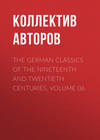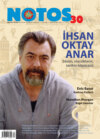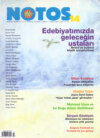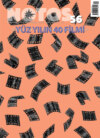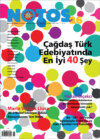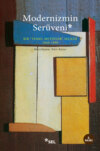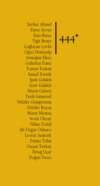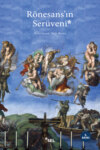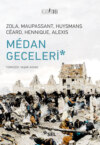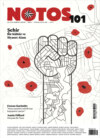Kitabı oku: «The German Classics of the Nineteenth and Twentieth Centuries, Volume 06», sayfa 12
THE RABBI OF BACHARACH59 (1840)
With kindly greeting, the Legend of the Rabbi of Bacharach is dedicated to his friend HENRY LAUBE by the AUTHOR
A FRAGMENT
TRANSLATED BY CHARLES GODFREY LELAND
TRANSLATION REVISED BY PAUL BERNARD THOMAS
CHAPTER I
On the Lower Rhine, where its banks begin to lose their smiling aspect, where the hills and cliffs with their romantic ruined castles rise more defiantly, and a wilder, sterner majesty prevails, there lies, like a strange and fearful tale of olden times, the gloomy and ancient town of Bacharach. But these walls, with their toothless battlements and blind turrets, in whose nooks and niches the winds whistle and the sparrows build their nests, were not always so decayed and fallen, and in these poverty-stricken, repulsive muddy lanes which one sees through the ruined gate, there did not always reign that dreary silence which only now and then is broken by the crying of children, the scolding of women, and the lowing of cows. These walls were once proud and strong, and these lanes were alive with fresh, free life, power and pomp, joy and sorrow, much love and much hate. For Bacharach once belonged to those municipalities which were founded by the Romans during their rule on the Rhine; and its inhabitants, though the times which came after were very stormy, and though they had to submit first to the Hohenstaufen, and then to the Wittelsbach authority, managed, following the example of the other cities on the Rhine, to maintain a tolerably free commonwealth. This consisted of an alliance of separate social elements, in which the patrician elders and those of the guilds, who were subdivided according to their different trades, both strove for power; so that while they were bound in union to resist and guard against outside robber-nobles, they were, nevertheless, constantly having domestic dissensions over disputed interests. Consequently there was but little social intercourse, much mistrust, and not infrequently actual outbursts of passion. The ruling governor sat in his lofty castle of Sareck, and swooped down like his falcon, whenever he was called, and often when not called. The clergy ruled in darkness by darkening the souls of others. One of the most forsaken and helpless of the social elements, which had been gradually bound down by local laws, was the little Jewish community. This had first settled in Bacharach in the days of the Romans, and during the later persecution of the Jews it had taken in many a flock of fugitive co-religionists.
The great oppression of the Jews began with the crusades, and raged most furiously about the middle of the fourteenth century, at the end of the great pestilence, which, like all other great public disasters, was attributed to the Jews, because people declared they had drawn down the wrath of God, and, with the help of the lepers, had poisoned the wells. The enraged populace, especially the hordes of Flagellants, or half-naked men and women, who, lashing themselves for penance and singing a mad hymn to the Virgin, swept over South Germany and the Rhenish provinces, murdered in those days many thousand Jews, tortured others, or baptized them by force. There was another accusation which in earlier times and all through the Middle Ages, even to the beginning of the last century, cost much blood and suffering. This was the ridiculous story, recurring with disgusting frequency in chronicle and legend, that the Jews stole the consecrated wafer, and pierced it with knives till blood ran from it; and to this it was added that at the feast of the Passover the Jews slew Christian children to use their blood in the night sacrifice.
Consequently on the day of this festival the Jews, hated for their wealth, their religion, and the debts due to them, were entirely in the hands of their enemies, who could easily bring about their destruction by spreading the report of such a child-murder, and perhaps even secretly putting a bloody infant's corpse in the house of a Jew thus accused. Then at night they would attack the Jews at their prayers, and murder, plunder, and baptize them; and great miracles would be wrought by the dead child aforesaid, whom the Church would eventually canonize. Saint Werner is one of these holy beings, and in his honor the magnificent abbey of Oberwesel was founded. The latter is now one of the most beautiful ruins on the Rhine, and with the Gothic grandeur of its long ogival windows, proud and lofty pillars, and marvelous stone-carving, it strangely enchants us when we wander by it on some bright, green summer's day, and do not know the story of its origin. In honor of this saint there were also three great churches built on the Rhine, and innumerable Jews murdered and maltreated. All this happened in the year 1287; and in Bacharach, where one of these Saint Werner's churches stood, the Jews suffered much misery and persecution. However, they remained there for two centuries after, protected from such outbreaks of popular rage, though they were continually subject to spite and threats.
Yet the more they were oppressed by hate from without, the more earnestly and tenderly did the Jews of Bacharach cherish their domestic life within, and the deeper was the growth among them of piety and the fear of God. An ideal example of a life given to God was seen in their Rabbi Abraham, who, though still a young man, was famed far and wide for his learning. He was born in Bacharach, and his father, who had been the rabbi there before him, had charged him in his last will to devote his life to that office and never to leave the place unless for fear of life. This command, except for a cabinet full of rare books, was all that his parent, who had lived in poverty and learning, left him. Rabbi Abraham, however, was a very rich man, for he had married the only daughter of his father's brother, who had been a prosperous dealer in jewelry, and whose possessions he had inherited. A few gossips in the community hinted now and then that the Rabbi had married for money. But the women all denied this, declaring that the Rabbi, long ere he went to Spain, had been in love with "Beautiful Sara," and recalling how she had awaited his return for seven years, while, as a matter of fact, he had already wedded her against the will of her father, and even without her own consent, by the betrothal-ring. For every Jew can make a Jewish girl his lawful wife, if he can succeed in putting a ring on her finger, and say at the same time: "I take thee for my wife, according to the law of Moses and Israel." And when Spain was mentioned, the same gossips were wont to smile in the same significant manner, all because of a vague rumor that Rabbi Abraham, though he had studied the holy law industriously enough at the theological school in Toledo, had nevertheless followed Christian customs and become imbued with habits of free thinking, like many of the Spanish Jews who at that time had attained a very remarkable degree of culture.
And yet in the bottom of their hearts these gossips put no faith in such reports; for ever since his return from Spain the daily life of the Rabbi had been pure, pious, and earnest in every way. He performed every detail of all religious customs and ceremonies with painstaking conscientiousness; he fasted every Monday and Thursday—only on Sabbaths and feast days did he indulge in meat or wine; his time was passed in prayer and study; by day he taught the Law to students, whom his fame had drawn to Bacharach; and by night he gazed on the stars in heaven, or into the eyes of Beautiful Sara. His married life was childless, yet there was no lack of life or gaiety in his home. The great hall in his house, which stood near the synagogue, was open to the whole community, so that people went in and out without ceremony, some to offer short prayers, others to gather news, or to hold a consultation when in trouble. Here the children played on Sabbath mornings while the weekly "section" was being read; here people met for wedding and funeral processions, and quarreled or were reconciled; here, too, those who were cold found a warm stove, and those who were hungry, a well-spread table. And, moreover, the Rabbi, as well as his wife, had a multitude of relatives, brothers and sisters, with their wives and children, and an endless array of uncles and cousins, all of whom looked up to the Rabbi as the head of the family, and so made themselves at home in his house, never failing to dine with him on all great festivals.
Special among these grand gatherings in the Rabbi's house was the annual celebration of the Passover, a very ancient and remarkable feast which the Jews all over the world still hold every year in the month Nissen, in eternal remembrance of their deliverance from Egyptian servitude. This takes place as follows:
As soon as it is dark the matron of the family lights the lamps, spreads the table-cloth, places in its midst three flat loaves of unleavened bread, covers them with a napkin, and places on them six little dishes containing symbolical food, that is, an egg, lettuce, horse-radish, the bone of a lamb, and a brown mixture of raisins, cinnamon, and nuts. At this table the father of the family sits with all his relatives and friends, and reads to them from a very curious book called the Agade, whose contents are a strange mixture of legends of their forefathers, wondrous tales of Egypt, disputed questions of theology, prayers, and festival songs. During this feast there is a grand supper, and even during the reading there is at specified times tasting of the symbolical food and nibbling of Passover bread, while four cups of red wine are drunk. Mournfully merry, seriously gay, and mysteriously secret as some old dark legend, is the character of this nocturnal festival, and the traditional singing intonation with which the Agade is read by the father, and now and then reëchoed in chorus by the hearers, first thrills the inmost soul as with a shudder, then calms it as mother's lullaby, and again startles it so suddenly into waking that even those Jews who have long fallen away from the faith of their fathers and run after strange joys and honors, are moved to their very hearts, when by chance the old, well-known tones of the Passover songs ring in their ears.
And so Rabbi Abraham once sat in his great hall surrounded by relatives, disciples, and many other guests, to celebrate the great feast of the Passover. Everything was unusually brilliant; over the table hung the gaily embroidered silk canopy, whose gold fringes touched the floor; the plates of symbolic food shone invitingly, as did the tall wine goblets, adorned with embossed pictures of scenes in holy legends. The men sat in their black cloaks and black low hats, and white collars, the women, in wonderful glittering garments of Lombard stuffs, wore on their heads and necks ornaments of gold and pearls, while the silver Sabbath lamp cast its festive light on the cheerful, devout faces of parents and children. On the purple velvet cushions of a chair, higher than the others, reclined, as custom requires, Rabbi Abraham, who read and sang the Agade, while the gay assembly joined in, or answered in the appointed places. The Rabbi also wore the prescribed black festival garment, his nobly-formed, but somewhat severe features had a milder expression than usual, his lips smiled through his dark-brown beard as if they would fain say something kind, while in his eyes one could see happy remembrances combined with some strange foreboding. Beautiful Sara, who sat on the high velvet cushion with her husband, as hostess, had on none of her jewelry—nothing but white linen enveloped her slender form and innocent face. This face was touchingly beautiful, even as all Jewish beauty is of a peculiarly moving kind; for the consciousness of the deep wretchedness, the bitter ignominy, and the evil dangers amid which their kindred and friends dwell, imparts to their lovely features an expression of soulful sadness and watchful, loving anxiety, which particularly charms our hearts. So on this evening Beautiful Sara sat looking into the eyes of her husband, yet glancing ever and anon at the beautiful parchment book of the Agade which lay before her, bound in gold and velvet.
It was an old heirloom, with ancient wine stains on it, and had come down from the days of her grandfather; and in it there were many boldly and brightly-colored pictures, which as a little girl she had often looked at so eagerly on Passover evenings. They represented all kinds of Bible incidents—Abraham breaking with a hammer the idols of his father and the angels appearing to him; Moses slaying Mizri; Pharaoh sitting in state on his throne, and the frogs giving him no peace even at the table; his death by drowning—the Lord be praised!—the children of Israel cautiously crossing the Red Sea, and then standing open-mouthed, with their sheep, cows, and oxen, before Mount Sinai; pious King David playing the harp; and, finally, Jerusalem, with its towers and battlements, shining in the splendor of the setting sun.
The second wine-cup had been served, the faces and voices of the guests were growing merrier, and the Rabbi, as he took a loaf of unleavened bread and raised it with a cheerful smile, read these words from the Agade: "Behold! This is the food which our fathers ate in Egypt! Let every one who is hungry come and enjoy it! Let every one who is sorrowful come and share the joy of our Passover! This year we celebrate it here, but in years to come in the land of Israel. This year we celebrate it as servants, but in the years to come as sons of freedom!"
Then the hall door opened, and two tall, pale men, wrapped in very loose cloaks, entered and said:
"Peace be with you. We are men of your faith on a journey, and wish to share the Passover-feast with you!" And the Rabbi replied promptly and kindly:
"Peace be with you! Sit ye down near me!" The two strangers immediately sat down at the table, and the Rabbi read on. Several times while the others were repeating a sentence after him, he said an endearing word to his wife; once, alluding to the old humorous saying that on this evening a Hebrew father of a family regards himself as a king, he said to her, "Rejoice, oh my Queen!" But she replied with a sad smile, "The Prince is wanting," meaning by that a son, who, as a passage in the Agade requires, has to ask his father, with a certain formula of words, what the meaning of the festival is? The Rabbi said nothing, but pointed with his finger to an opened page of the Agade, on which was a pretty picture, showing how the three angels came to Abraham, announcing that he would have a son by his wife Sara, who, meanwhile, urged by feminine curiosity, is slyly listening to it all behind the tent-door. This little sign caused a threefold blush to color the cheeks of Beautiful Sara, who first looked down, and then glanced pleasantly at her husband, who went on chanting the wonderful story how Rabbi Jesua, Rabbi Eliezer, Rabbi Asaria, Rabbi Akiba, and Rabbi Tarphen sat reclining in Bona-Brak, and conversed all night long of the Exodus from Egypt, till their disciples came to tell them that it was daylight, and that the great morning prayer was being read in the synagogue.
While Beautiful Sara sat devoutly listening to and looking at her husband, she saw his face suddenly assume an expression of agony or horror, his cheeks and lips become deathly pale, and his eyes harden like two balls of ice; but almost immediately he regained his previous composure and cheerfulness, his cheeks and lips grew ruddy, and he looked about him gaily—nay, it seemed as if a strange, wild humor, such as was foreign to his nature, had seized him. Beautiful Sara was frightened as she had never been before in all her life, and a cold shudder went through her—due less to the momentary manifestation of dumb horror which she had seen in her husband's face, than to the cheerfulness which followed it, and which was now gradually developing into jubilant hilarity. The Rabbi cocked his cap comically, first on one ear, then on the other, pulled and twisted his beard ludicrously, and sang the Agade texts as if they were tavern-songs; and in the enumeration of the Egyptian plagues, where it is usual to dip the forefinger in the full wine-cup and flip off the drops that adhere, he sprinkled the young girls near him with the red wine, so that there was great wailing over spoiled collars, combined with loud laughter. Every moment Beautiful Sara was becoming more amazed by this convulsive merriment of her husband, and she was oppressed with nameless fears as she gazed on the buzzing swarm of gaily glittering guests who were comfortably enjoying themselves here and there, nibbling the thin Passover cakes, drinking wine, gossiping, or joyfully singing aloud.
Then came the time for supper. All rose to wash, and Beautiful Sara brought the large silver basin, richly adorned with embossed gold figures, which was held before all the guests in turn, while water was poured over their hands. As she was doing this for the Rabbi, he gave her a significant glance, and quietly slipped out of the door. When Beautiful Sara walked out after him, he grasped her hand, and in the greatest haste hurried her through the dark lanes of Bacharach, out of the city gate to the highway which leads along the Rhine to Bingen.
It was one of those spring nights which, to be sure, are mild and starry enough, yet which inspire the soul with strange, uncanny feelings. There was something funereal in the odor of the flowers, the birds chirped spitefully and at the same time apprehensively, the moon cast malicious yellow stripes of light over the dark murmuring stream, the lofty banks of the Rhine looked like vague, threatening giants' heads. The watchman on the tower of Castle Strahleck blew a melancholy blast, and with it rang in jarring discord the funeral bell of Saint Werner's.
Beautiful Sara still had the silver basin in her right hand, while the Rabbi held her left, and she felt that his fingers were ice-cold, and that his arm was trembling; but still she went on with him in silence, perhaps because she had become accustomed to obey her husband blindly and unquestioningly—perhaps, too, because her lips were mute with fear and anxiety.
Below Castle Sonneck, opposite Lorch, about the place where the hamlet of Nieder Rheinbach now lies, there rises a cliff which arches out over the Rhine bank. The Rabbi ascended this with his wife, looked around on every side, and gazed on the stars. Trembling and shivering, as with the pain of death, Beautiful Sara looked at his pale face, which seemed ghastly in the moonlight, and seemed to express by turns pain, terror, piety, and rage. But when the Rabbi suddenly snatched from her hands the silver basin and threw it far out into the Rhine, she could no longer endure the agony of uncertainty, and crying out "Schadai, be merciful!" threw herself at his feet and conjured him to explain the dark mystery.
At first unable to speak, the Rabbi moved his lips without uttering a sound; but finally he cried, "Dost thou see the Angel of Death? There below he sweeps over Bacharach. But we have escaped his sword. God be praised!" Then, in a voice still trembling with excitement, he told her that, while he was happily and comfortably singing the Agade, he happened to glance under the table, and saw at his feet the bloody corpse of a little child. "Then I knew," continued the Rabbi, "that our two guests were not of the community of Israel, but of the army of the godless, who had plotted to bring that corpse into the house by stealth so as to accuse us of child-murder, and stir up the people to plunder and murder us. Had I given a sign that I saw through that work of darkness I should have brought destruction on the instant down upon me and mine, and only by craft did I save our lives. Praised be God! Grieve not, Beautiful Sara. Our relatives and friends shall also be saved; it was only my blood which the wretches wanted. I have escaped them, and they will be satisfied with my silver and gold. Come with me, Beautiful Sara, to another land. We will leave misfortune behind us, and so that it may not follow us I have thrown to it the silver ewer, the last of my possessions, as an offering. The God of our fathers will not forsake us. Come down, thou art weary. There is Dumb William standing by his boat; he will row us up the Rhine."
Speechless, and as if every limb were broken, Beautiful Sara sank into the arms of the Rabbi, who slowly bore her to the bank. There stood William, a deaf and dumb but very handsome youth, who, to support his old foster-mother, a neighbor of the Rabbi, caught and sold fish, and kept his boat in this place. It seemed as if he had divined the intention of Abraham, and was waiting for him, for on his silent lips there was an expression of tender sympathy, and his large blue eyes rested as with deep meaning on Beautiful Sara, as he lifted her carefully into the boat.
The glance of the silent youth roused Beautiful Sara from her lethargy, and she realized at once that all which her husband had told her was not a mere dream. A stream of bitter tears poured over her cheeks, which were as white as her garment. Thus she sat in the boat, a weeping image of white marble, and beside her sat her husband and Dumb William, who was busily rowing.
Whether it is due to the measured beat of the oars, or to the rocking of the boat, or to the fresh perfume from those steep banks whereon joy grows, it ever happens that even the most sorrowful heart is marvelously relieved when on a night in spring it is lightly borne along in a small boat on the dear, limpid waters of the Rhine. For, in truth, kind-hearted, old Father Rhine cannot bear to see his children weep, and so, drying their tears, he rocks them on his trusty arm, and tells them his most beautiful stories, and promises them his most golden treasures, perhaps even the old, old, long-sunk Nibelungen hoard. Gradually the tears of Beautiful Sara ceased to flow; her extreme sorrow seemed to be washed away by the whispering waves, while the hills about her home bade her the tenderest farewell. But especially cordial seemed the farewell greeting of Kedrich, her favorite mountain; and far up on its summit, in the strange moonlight, she imagined she saw a lady with outstretched. arms, while active little dwarfs swarmed out of their caverns in the rocks, and a rider came rushing down the side in full gallop. Beautiful Sara felt as if she were a child again, and were sitting once more in the lap of her aunt from Lorch, who was telling her brave tales of the bold knight who freed the stolen damsel from the dwarfs, and many other true stories of the wonderful Wisperthal over there, where the birds talk as sensibly as men, and of Gingerbread Land, where good, obedient children go, and of enchanted princesses, singing trees, crystal castles, golden bridges, laughing water-fairies…. But suddenly in the midst of these pleasant tales, which began to send forth notes of music and to gleam with lovely light, Beautiful Sara heard the voice of her father, scolding the poor aunt for putting such nonsense into the child's head. Then it seemed to her as if they set her on the little stool before her father's velvet-covered chair, and that he with a soft hand smoothed her long hair, smiling as if well pleased, while he rocked himself comfortably in his loose, Sabbath dressing-gown of blue silk. Yes, it must be the Sabbath, for the flowered cover was spread on the table, all the utensils in the room were polished like looking-glasses, the white-bearded usher sat beside her father, eating raisins and talking in Hebrew; even little Abraham came in with a very large book, and modestly begged leave of his uncle to expound a portion of the Holy Scripture, that he might prove that he had learned much during the past week, and therefore deserved much praise—and a corresponding quantity of cakes…. Then the lad laid the book on the broad arm of the chair, and set forth the history of Jacob and Rachel—how Jacob raised his voice and wept when he first saw his cousin Rachel, how he talked so confidingly with her by the well, how he had to serve seven years for her, and how quickly the time passed, and how he at last married and loved her for ever and ever…. Then all at once Beautiful Sara remembered how her father cried with merry voice, "Wilt thou not also marry thy cousin Sara like that?" To which little Abraham gravely replied, "That I will, and she shall wait seven years too." These memories stole like twilight shadows through the soul of the young wife, and she recalled how she and her little cousin—now so great a man and her husband—played together as children in the leafy tabernacle; how delighted they were with the gay carpets, flowers, mirrors, and gilded apples; how little Abraham caressed her more and more tenderly, till little by little he began to grow larger and more self-interested, and at last became a man and scarcely noticed her at all…. And now she sits in her room alone on a Saturday evening; the moon shines in brightly. Suddenly the door flies open, and cousin Abraham, in traveling garb, and as pale as death, enters, grasps her hand, puts a gold ring on her finger, and says, solemnly, "I hereby take thee to be my wife, according to the laws of God and of Israel." "But now," he adds, with a trembling voice, "now I must go to Spain. Farewell! For seven years thou must wait for me." With that he hurried away, and Sara, weeping, told the tale to her father, who roared and raged, "Cut off thy hair, for thou art now a married woman." Then he wanted to ride after Abraham to compel him to write a letter of divorce; but Abraham was over the hills and far away, and the father silently returned to his house. And when Beautiful Sara was helping him to draw off his boots, and trying to soothe him, saying that Abraham would return in seven years, he cursed, and cried, "Seven years shalt thou be a beggar," and shortly after he died.
And so old memories swept through her soul like a hurried play of shadows, the images intermixing and blending strangely, while between them came and went half-familiar, half-strange bearded faces, and large flowers with marvelously spreading foliage. Then the Rhine seemed to murmur the melodies of the Agade, and from its waters the pictures, as large as life, but wild and distorted, came forth one by one. There was Father Abraham anxiously breaking the idols into pieces which immediately flew together again; Mizri defending himself fiercely against the maddened Moses; Mount Sinai flashing and flaming; King Pharaoh swimming in the Red Sea, holding his pointed gold crown tightly in his teeth, while frogs with human faces swam along behind, in the foaming, roaring waves, and a dark giant-hand rose up threatening from below.
Yonder was the Mouse Tower of Bishop Hatto, and the boat was just shooting through the Bingen Eddy. By this time Beautiful Sara had somewhat awakened from her dreams, and she gazed at the hills on the shore, on the summits of which lights of castles were gleaming, and at the foot of which the mist, shimmering in the moonlight, was beginning to rise. Suddenly she seemed to see her friends and relatives, as they, with corpse-like faces and flowing shrouds, passed in awful procession along the Rhine…. The world grew dark before her eyes, an icy current ran through her soul, and, as if in sleep, she only heard the Rabbi repeating the night-prayer slowly and painfully, as if at a deathbed. Dreamily she stammered the words, "Ten thousand to the right, ten thousand to the left, to protect the king from the terrors of the night."
Then all at once the oppressive gloom and terror passed away, the dark curtain was torn from heaven, and far above there appeared the holy city Jerusalem, with its towers and gates; the Temple gleamed in golden splendor, and in its fore-court Sara saw her father in his yellow Sabbath dressing-gown, smiling as if well pleased. All her friends and relatives were looking out from the round windows of the Temple, cordially greeting her; in the Holy of Holies knelt pious King David, with his purple mantle and golden crown; sweetly rang his song and the tones of his harp, and smiling happily, Beautiful Sara awoke.
